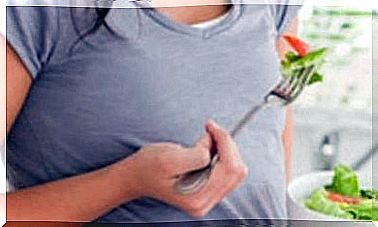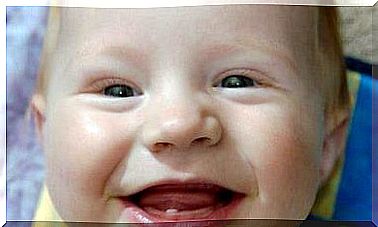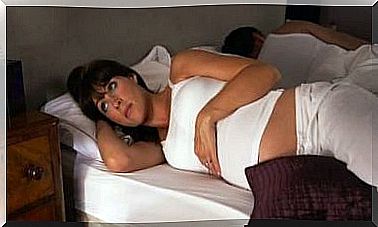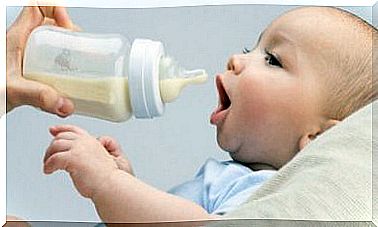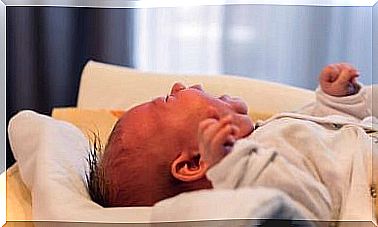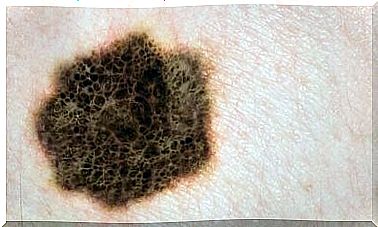How To Relieve Pain In The Gums In Babies
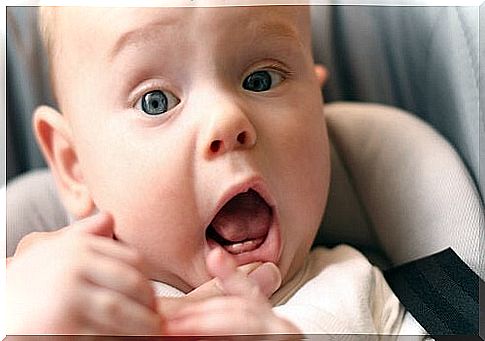
Getting teeth is a natural process that occurs continuously in a baby’s development. However, the experience may give parents cause for concern.
Fortunately, there are simple techniques that can help reduce the unpleasant pain in the gums.
Babies’ teeth begin to take shape when they are still in their mother’s womb. Teeth eruption occurs around the age of 6 months, and extends until the baby is 28 months.
Each child is unique, so the time frame can vary from child to child. Some children even come into the world with one or more teeth.
The central teeth are usually the first to erupt. The lower teeth appear before the teeth in the upper mouth.
At about 10 months of age, the upper, lateral front teeth begin to erupt, moistening the lower front teeth.
Cheek teeth and canines erupt between the 14th and 18th month.
Frequent symptoms of gum pain
It is important to monitor the children’s behavior. Since they still have not developed their language, they can not say how they feel.
Their moods tend to change when they start getting teeth. They start crying, and get upset for no apparent reason.
You have to check their mouths. Pain in the gums is caused by inflammation.
The gums begin to swell, and this happens even before the teeth begin to become visible. They also start drooling a lot more.
Since they are in pain, children can stop eating the same amount that they normally do. They will also exhibit some difficulty sleeping in a horizontal position.
Their heart rate becomes more intense and their heart rate rises because they are in pain. This is called “throbbing pain”.
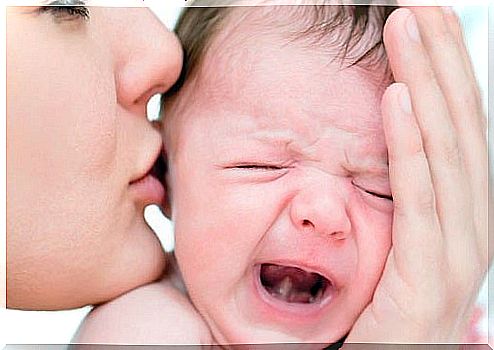
When should you consult a doctor?
High temperatures can signal infection. Diarrhea can also be a sign of a bacterial virus, or other stomach problems.
Sometimes, babies may have put something dirty in their mouth, or have a wound from something they have bitten into. Parents should be vigilant.
If the correct precautions are not taken, constant salivation can cause irritation to the baby’s skin and cheeks.
Since they drool more than normal, their stools may be a little softer. These circumstances are normal and they can be prevented.
How to relieve pain in the gums?
Putting something cold on their gums is an effective home remedy to relieve the pain.
To make use of this technique, you can take a glass of ice water, put your fingers in it, and then place your fingers on their gums.
If your baby uses a pacifier, you can put it in the fridge and then give them the pacifier when it is cold.
There are several products in the supermarkets that are made of rubber, with a bit of gel inside that babies can bite into.
It is important to put these products in the refrigerator so that you can cool them down, but they should not be frozen. The low temperature is effective in reducing inflammation and pain.
Their diet can also help them. Preparing homemade, sugar-free ice cream can be a great option. Small pieces of apple, as well as pear, mango, banana and papaya, can also provide pain relief.
The best remedy is love
Feeding, or getting the kids to sleep, can be difficult when they are about to get teeth. It can be less annoying to use a spoon made of silicone.
And, before you put them to bed, it is recommended that you give them a warm bath to help them relax.
Tears can be constant as it is the baby’s way of complaining and expressing their pain.
Signs of love will help you calm them down. It will help your baby relax and stop crying if you take him in your arms, sing for him, or just spend time with him.
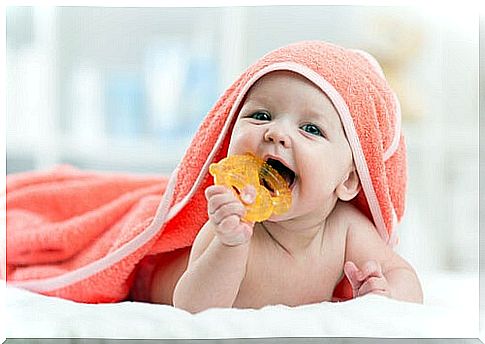
Does medicine work?
Tooth eruption can take up to 1 year, and will cause a lot of pain in the gums in babies.
If you experience that home remedies do not work for them, you can use medication.
It will be the pediatrician’s job to decide what to prescribe. The most commonly used medications are painkillers that can be applied directly to their gums.
These drugs can not be used when breastfeeding as they contain anesthetics.
Pediatricians sometimes recommend the use of anesthetics, such as ibuprofen, acetaminophen, and paracetamol.
However, keep in mind that the use of acetylsalicylic acid and benzocaine is conflicting.
Preventive care
Sugar, junk food and refined sweets should be avoided. Their diet should consist of vegetables, fruits, legumes and proteins. Calcium should also be incorporated into their diet.
When it comes to the appearance of their teeth, they can sometimes look a little crooked. There is no need to worry about this as they usually correct themselves over time.


